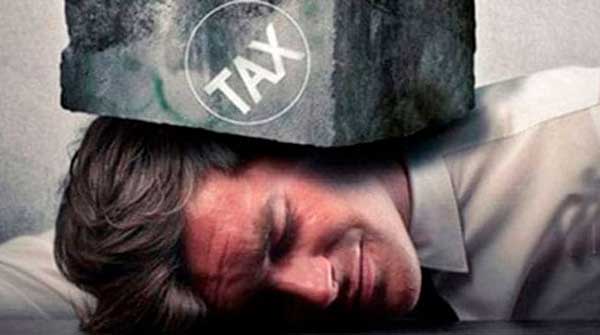The recent provincial budget was a golden opportunity to cut taxes and end the growing debt
 The Saskatchewan government could have helped taxpayers.
The Saskatchewan government could have helped taxpayers.
It could have made a plan to pay off the debt.
It didn’t do any of that.
Despite near-record revenues, the Saskatchewan budget fails to provide any tax relief for Saskatchewanians and the debt will keep increasing after 2024.
The government saw a $1.6 billion turnaround in 2022-23, leaving the government with a billion-dollar surplus. In 2023-24, government revenue is up $2.5 billion, a 15 per cent increase over last year. Spending is up $1 billion. Spending is up on almost every budget line. The surplus is also projected at $1 billion.
To its credit, the government plans to pay back up to $1 billion in debt in 2023-24 after paying back a similar amount in 2022-23. That seems like great news until you look a little deeper.
Paying down your credit card bill is a great achievement: it sets you up for the future and means you don’t have to waste as much money on interest charges. It becomes less of an achievement if you instantly go out and start driving up the same bill you just paid back.
And that is exactly what the Saskatchewan government is planning to do. The debt is currently $18.5 billion and will be $18.1 billion by the end of 2024. But by 2027, the government projects the debt will increase 23 per cent to $22.3 billion – all on the backs of taxpayers.
It’s disappointing that the government couldn’t find savings anywhere to stop the debt from rising. Especially when they didn’t have to look very far. The government didn’t need to spend $8,000 chartering a flight to North Battleford or subsidize Delta Airlines to the tune of $2.2 million. Now, because the government refused to cut back, Saskatchewanians are going to be stuck with the bill for interest payments well into the future.
Interest payments on the taxpayer-supported debt will be $708 million this year. That’s costing every single Saskatchewanian an average of $587 every year. That money is going to be completely wasted and can’t be used for tax cuts or programs. And every year the government lets the debt climb, this number is going to increase.
Despite the surplus, the government is also failing to provide any sort of tax relief unless you count a new PST exemption on rice farming boats. Other provinces have been cutting taxes and saving residents real money, but Saskatchewan is failing to provide relief that families need.
Alberta, Ontario and Newfoundland and Labrador all recently cut gas taxes. Drivers in Alberta will be saving up to $440 this year. In Ontario, a family will see $195 in savings. And in Newfoundland and Labrador the average two-car family can expect $475 in savings.
Manitoba, Quebec, and New Brunswick also recently cut income taxes. In Manitoba, the cut will save an individual up to $524 in 2023. Taxpayers in Quebec will save up to $814, and those in New Brunswick will see a $310 lighter tax bill.
All while Saskatchewanians get nothing.
The opposition Saskatchewan NDP is calling for the government to cut the PST from construction labour to make homes more affordable.
“Adding the PST to construction labour was a mistake from day one, and it’s the epitome of a job-killing tax,” said NDP MLA Trent Wotherspoon.
The government should have listened and made housing cheaper.
Saskatchewan had a golden opportunity to cut taxes and commit to paying down the debt in this budget. Instead, the government is planning to increase the debt and leave Saskatchewan families without tax relief.
Gage Haubrich is the Prairie Director for the Canadian Taxpayers Federation.
For interview requests, click here.
The opinions expressed by our columnists and contributors are theirs alone and do not inherently or expressly reflect the views of our publication.
© Troy Media
Troy Media is an editorial content provider to media outlets and its own hosted community news outlets across Canada.


